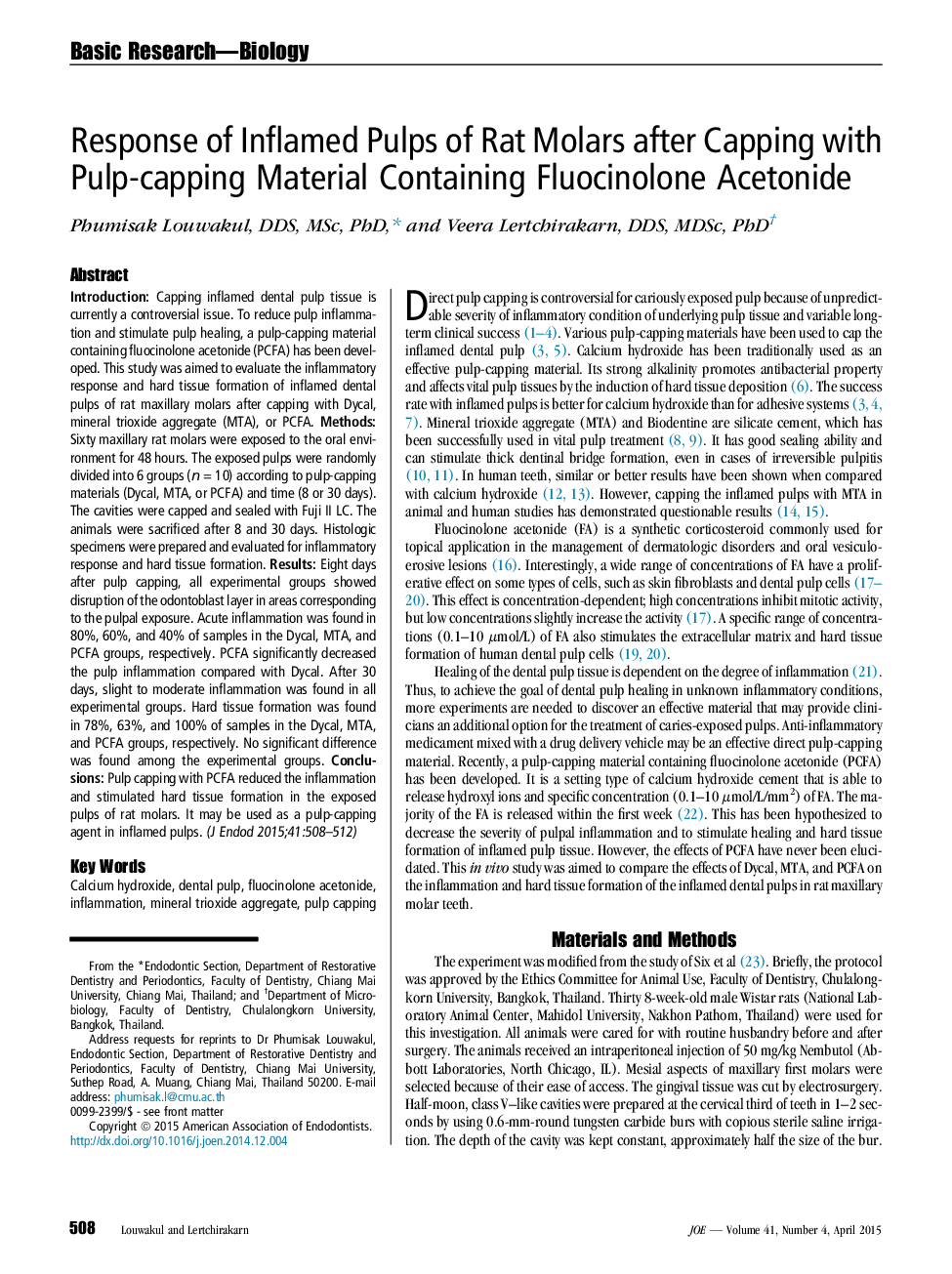| کد مقاله | کد نشریه | سال انتشار | مقاله انگلیسی | نسخه تمام متن |
|---|---|---|---|---|
| 3146787 | 1197317 | 2015 | 5 صفحه PDF | دانلود رایگان |
• We developed pulp-capping material containing fluocinolone acetonide (PCFA). It can release a suitable range of concentrations of fluocinolone acetonide (FA) and hydroxyl ions.
• The released FA reduce inflammation and stimulate healing of the exposed pulp tissues.
• The released hydroxyl ions can induce hard tissue formation in the exposed pulp tissues.
• Using PCFA will increase success rate of capping the inflamed dental pulps.
IntroductionCapping inflamed dental pulp tissue is currently a controversial issue. To reduce pulp inflammation and stimulate pulp healing, a pulp-capping material containing fluocinolone acetonide (PCFA) has been developed. This study was aimed to evaluate the inflammatory response and hard tissue formation of inflamed dental pulps of rat maxillary molars after capping with Dycal, mineral trioxide aggregate (MTA), or PCFA.MethodsSixty maxillary rat molars were exposed to the oral environment for 48 hours. The exposed pulps were randomly divided into 6 groups (n = 10) according to pulp-capping materials (Dycal, MTA, or PCFA) and time (8 or 30 days). The cavities were capped and sealed with Fuji II LC. The animals were sacrificed after 8 and 30 days. Histologic specimens were prepared and evaluated for inflammatory response and hard tissue formation.ResultsEight days after pulp capping, all experimental groups showed disruption of the odontoblast layer in areas corresponding to the pulpal exposure. Acute inflammation was found in 80%, 60%, and 40% of samples in the Dycal, MTA, and PCFA groups, respectively. PCFA significantly decreased the pulp inflammation compared with Dycal. After 30 days, slight to moderate inflammation was found in all experimental groups. Hard tissue formation was found in 78%, 63%, and 100% of samples in the Dycal, MTA, and PCFA groups, respectively. No significant difference was found among the experimental groups.ConclusionsPulp capping with PCFA reduced the inflammation and stimulated hard tissue formation in the exposed pulps of rat molars. It may be used as a pulp-capping agent in inflamed pulps.
Journal: Journal of Endodontics - Volume 41, Issue 4, April 2015, Pages 508–512
